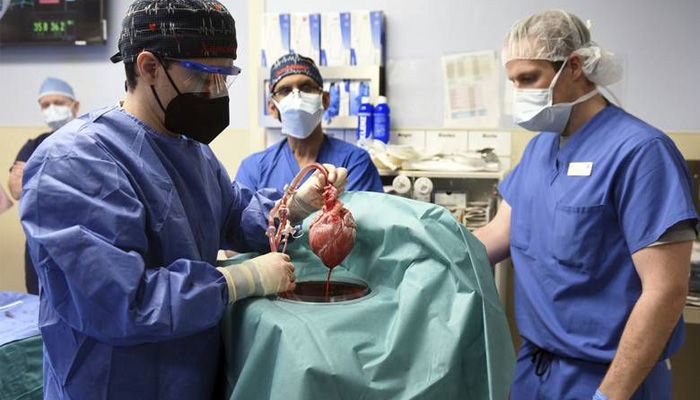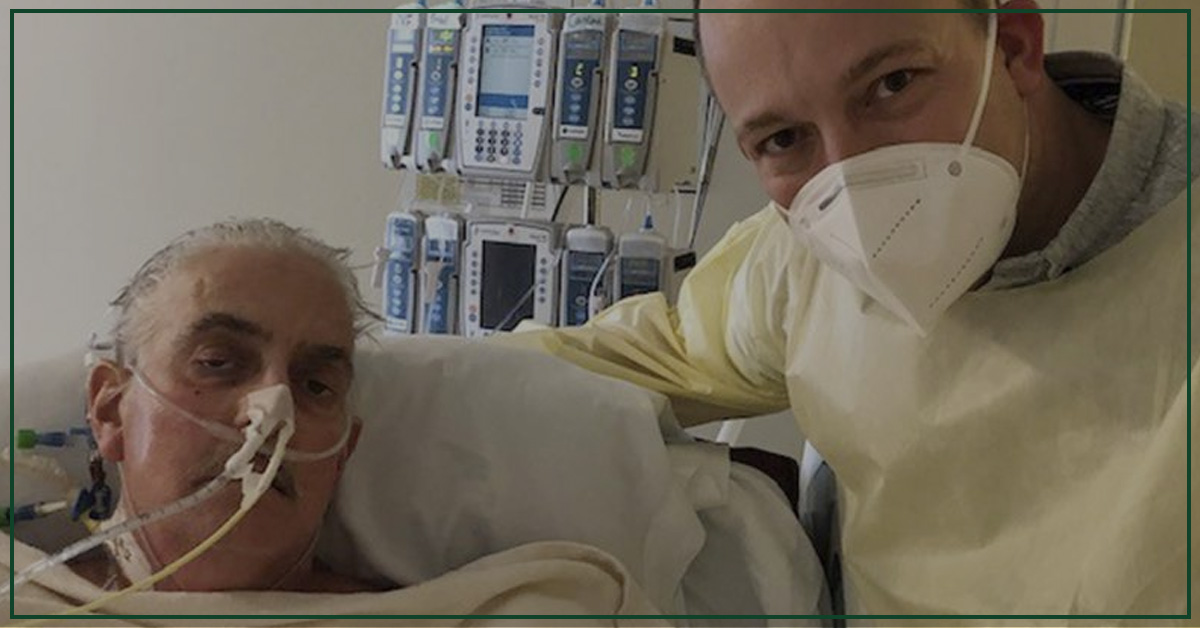The first individual to get a heart transplant from a pig has died, two months after the momentous experiment, the Maryland hospital that did the medical procedure declared Wednesday.
David Bennett, 57, passed on Tuesday at the University of Maryland Medical Center.
Specialists didn’t give a precise reason for death, saying just that his condition had started weakening a few days sooner.
Bennett’s child applauded the hospital for offering the last-ditch analysis, saying the family trusted it would assist with advancing endeavours to end the organ deficiency.
“We are grateful for every innovative moment, every crazy dream, every sleepless night that went into this historic effort,” David Bennett Jr. said in an explanation delivered by the University of Maryland School of Medicine. “We hope this story can be the beginning of hope and not the end.”
Specialists for a really long time have looked to one day utilize animal organs for life-saving transfers.
Bennett, a handyman from Hagerstown, Maryland, was a possibility for this freshest endeavour simply because he, in any case, confronted unavoidable demise – ineligible for a human heart transplant, laid up and in a coma, and out of different choices.

After the January 7 operation, Bennett’s child told media that his dad realized there was no assurance it would work.
Earlier endeavours at such transfers – or xenotransplantation – have flopped to a great extent since patients’ bodies quickly rejected the animal organ.
This time, the Maryland specialists utilized a heart from a gene-edited pig: Scientists had adjusted the creature to eliminate pig qualities that trigger the hyper-quick dismissal and add human qualities to assist the body with tolerating the organ.
At first, the pig heart was working, and the Maryland emergency clinic gave occasional updates that Bennett appeared to be gradually recuperating. Last month, the medical clinic delivered a video of him watching the Super Bowl from his clinic bed while working with his actual advisor.
Bennett endure essentially longer with the quality altered pig heart than one of the last achievements in xenotransplantation – when Baby Fae, a perishing California newborn child, lived 21 days with a baboon’s heart in 1984.
“We are devastated by the loss of Mr Bennett. He proved to be a brave and noble patient who fought all the way to the end,” Dr Bartley Griffith, who did the medical procedure at the Baltimore clinic, said in an explanation.
The requirement for one more source of organs is colossal. In excess of 41,000 transfers were acted in the US last year, a record – including around 3,800 heart transfers. In any case, in excess of 106,000 individuals stay on the public holding up list, thousands died consistently prior to getting an organ, and thousands all the more never at any point get added to the rundown, considered an over the top remote chance.
The Food and Drug Administration had permitted the sensational Maryland test under “empathetic use” rules for crisis circumstances. Bennett’s doctors said he had a cardiovascular breakdown and an irregular heartbeat, in addition to a background marked by not conforming to clinical guidelines. He was considered ineligible for a human heart transplant that requires severe utilization of invulnerable smothering prescriptions, or the leftover other option, an implanted heart pump.

Specialists didn’t uncover the specific reason for Bennett’s demise. Dismissal, contamination, and different inconveniences are taken a chance for transplant beneficiaries.
In any case, from Bennett’s insight, “we have gained invaluable insights learning that the genetically modified pig heart can function well within the human body while the immune system is adequately suppressed,” said Dr Muhammad Mohiuddin, logical head of the Maryland College’s animal-to-human transfer program.
One next question is whether researchers have advanced enough from Bennett’s insight and a few other late tests with gene-edited pig organs to convince the FDA to permit a clinical preliminary – potentially with an organ, for example, a kidney that isn’t quickly lethal assuming it fizzles.
Two times the previous fall, specialists at New York University got consent from the groups of perished people to briefly connect a gene-edited pig kidney to blood vessels outside the body and watch them work prior to finishing life support.
Furthermore, specialists at the University of Alabama at Birmingham went above and beyond, transplanting a couple of gene-edited pig kidneys into a mind-dead man in a bit-by-bit practice for an activity they desire to attempt in living patients potentially in the not so distant future.
Pigs have for quite some time been utilized in human medication, including pigskin unions and implantation of pig heart valves. In any case, transplanting entire organs is significantly more complicated than utilizing profoundly handled tissue.
The gene-edited pigs utilized in these tests were given by Revivicor, an auxiliary of United Therapeutics, one of a few biotech organizations in the racing to foster reasonable pig organs for possible human transfer.





